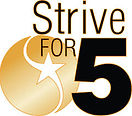top of page

Chapter 36
Reproduction and Development
Learning Objectives:
2.C.1: Organisms use feedback mechanisms to maintain their internal environments and respond to external environmental changes.
2.C.2: Organisms respond to changes in their external environments.
2.E.3: Timing and coordination of behavior are regulated by various mechanisms and are important in natural selection.
3.A.2: In eukaryotes, heritable information is passed to the next generation via processes that include the cell cycle and mitosis or meiosis plus fertilization.
3.A.3: The chromosomal basis of inheritance provides an understanding of the pattern of passage (transmission) of genes from parent to offspring.
3.B.1: Gene regulation results in differential gene expression, leading to cell specialization.

Test Your Understanding
Textbook page 771, #1-8
Complete in Notes.
As you complete test, mark questions with:
a star (I know this),
a checkmark (I might know this),
or a question mark (I don't know, I guessed).
Self-correct.
Write validations/corrections for checkmarks, question marks, and missed stars (oops).

Scientific Skills Exercise:
Making inferences and designing an experiment
What role do hormones play in making a mammal male or female?
Textbook page 761--Complete in Notes.
Bozeman Science: Reproductive System
Watch video.
Take notes.

bottom of page


